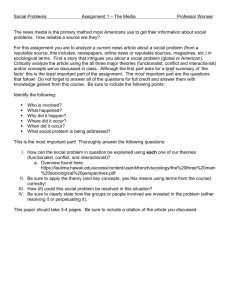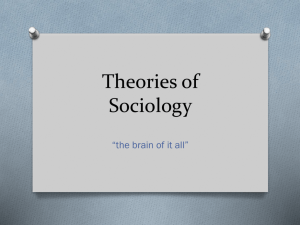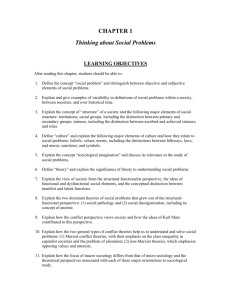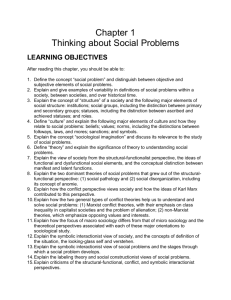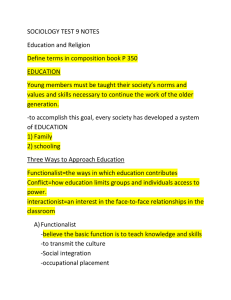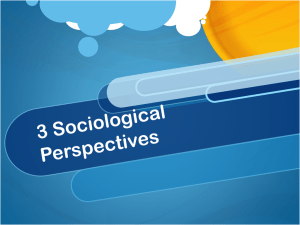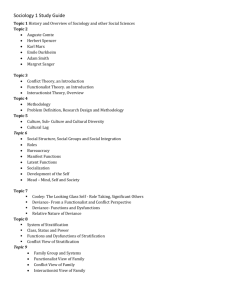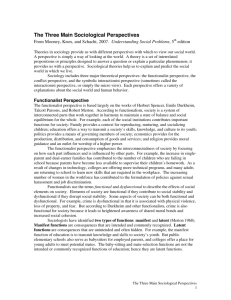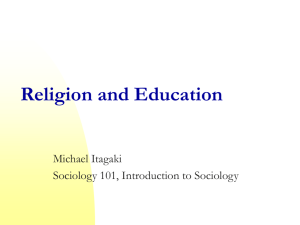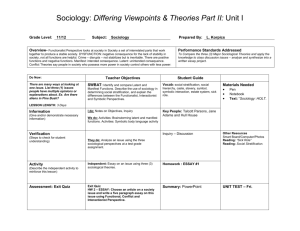4.3 social institutions.doc
advertisement
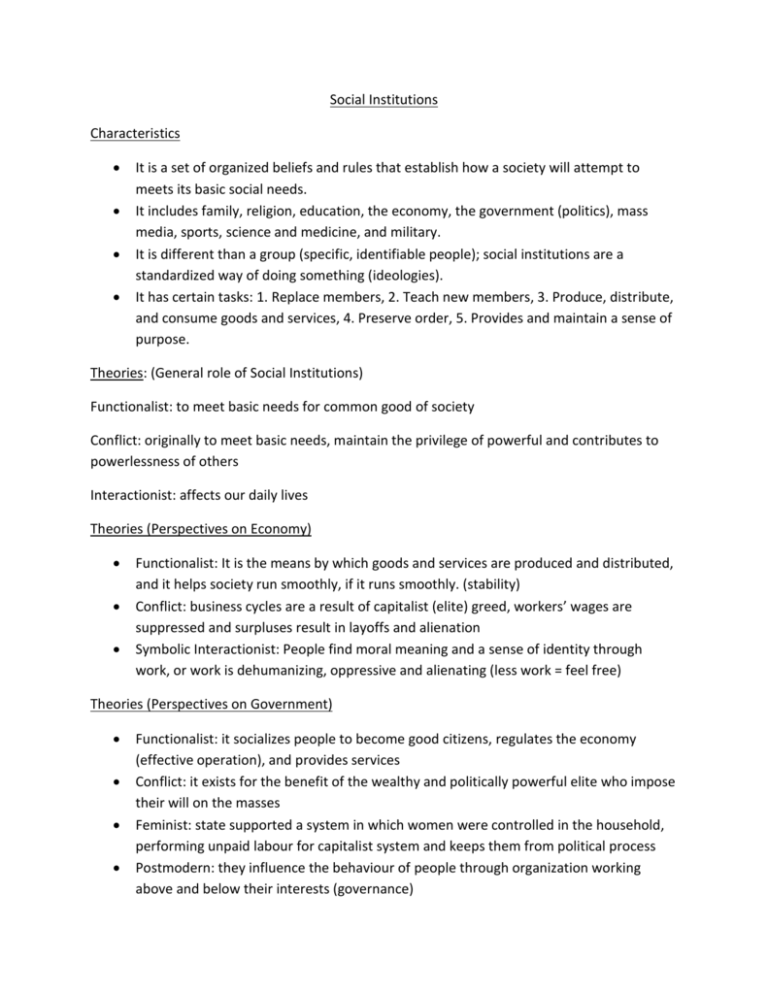
Social Institutions Characteristics It is a set of organized beliefs and rules that establish how a society will attempt to meets its basic social needs. It includes family, religion, education, the economy, the government (politics), mass media, sports, science and medicine, and military. It is different than a group (specific, identifiable people); social institutions are a standardized way of doing something (ideologies). It has certain tasks: 1. Replace members, 2. Teach new members, 3. Produce, distribute, and consume goods and services, 4. Preserve order, 5. Provides and maintain a sense of purpose. Theories: (General role of Social Institutions) Functionalist: to meet basic needs for common good of society Conflict: originally to meet basic needs, maintain the privilege of powerful and contributes to powerlessness of others Interactionist: affects our daily lives Theories (Perspectives on Economy) Functionalist: It is the means by which goods and services are produced and distributed, and it helps society run smoothly, if it runs smoothly. (stability) Conflict: business cycles are a result of capitalist (elite) greed, workers’ wages are suppressed and surpluses result in layoffs and alienation Symbolic Interactionist: People find moral meaning and a sense of identity through work, or work is dehumanizing, oppressive and alienating (less work = feel free) Theories (Perspectives on Government) Functionalist: it socializes people to become good citizens, regulates the economy (effective operation), and provides services Conflict: it exists for the benefit of the wealthy and politically powerful elite who impose their will on the masses Feminist: state supported a system in which women were controlled in the household, performing unpaid labour for capitalist system and keeps them from political process Postmodern: they influence the behaviour of people through organization working above and below their interests (governance) Theories (Perspectives on Education) Functionalist: crucial for promoting social solidarity and stability in society, it’s the influence exercised by adults on those not yet ready for social life. Moral education is conveyed. Its role is to ensure a high level of literacy, develop a love of learning, and to prepare students for citizenship. Conflict: education perpetuates class, racial-ethnic, and gender inequalities as some groups seek to maintain their privileged position Symbolic Interactionist: focus on classroom communication patterns and educational patterns such as labeling that affects students’ self-concept and aspirations Postmodern: a means of educational consumption that allows students to consume educational services and eventually obtain “goods” such as a degree Theories (Perspectives on Religion) Functionalist: it meets basic human needs and serves important societal functions. It binds us together by sacred beliefs and rituals. Three functions of religion are: 1. Providing meaning and purpose to life, 2. Promoting social cohesion and a sense of belonging, and 3. Providing social control and support for the government. Conflict: it slows social change, and it’s the tool of the capitalists to mislead the workers; it promotes strife between groups and societies Symbolic Interactionist: It serves as a reference group to help them define themselves. Religious symbols provide meaning for many people. Feminist: It assigns a different role to men and women; so women look at religion differently. Religious symbolism and language typically create a social definition of the roles of men and women (e.g. higher male deities and lower female deities). Theories (Perspectives on Families) Functionalist: Important in maintaining the stability of society and the well-being of the individual. Its functions include sexual regulation, socialization, economic and psychological support, and provision of social status. Conflict & Feminist: Families are a source of social inequality and an arena for conflict over values, goals, and access to resources and power. Symbolic Interactionist: It assigns different roles to different family members. It gives subjective meaning to relationships and everyday interpretations to each person life. Postmodern: It emphasizes that families are divers and variable. It is permeable and reflects the individualism, particularity and irregularity of social life in the Information Age.
